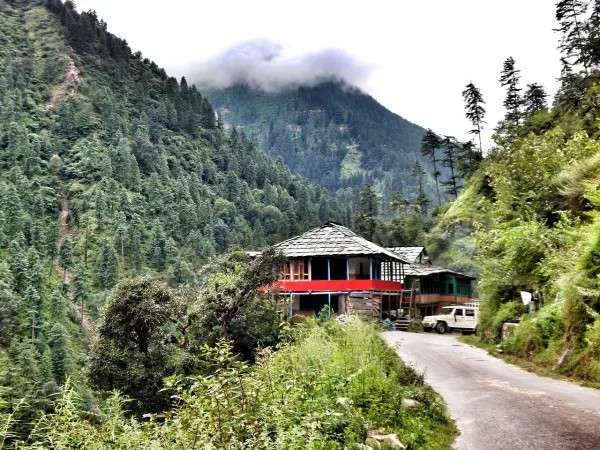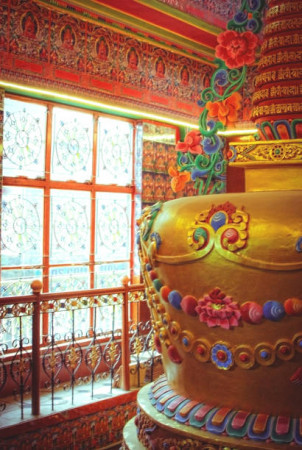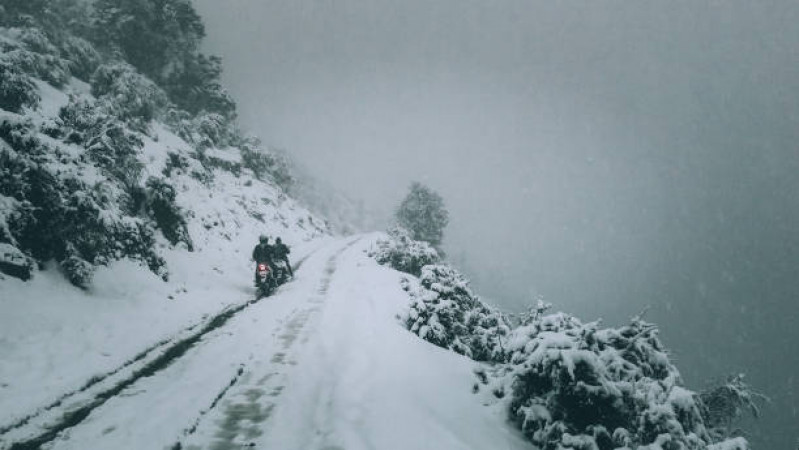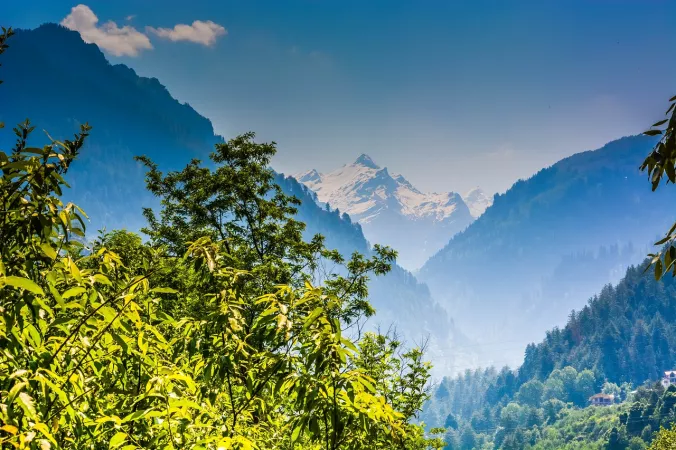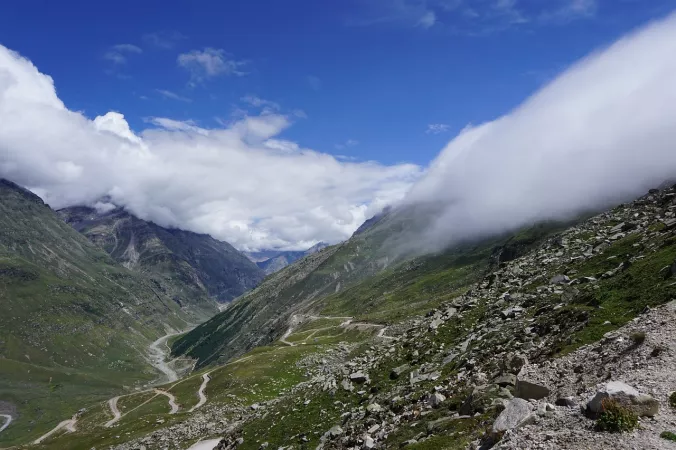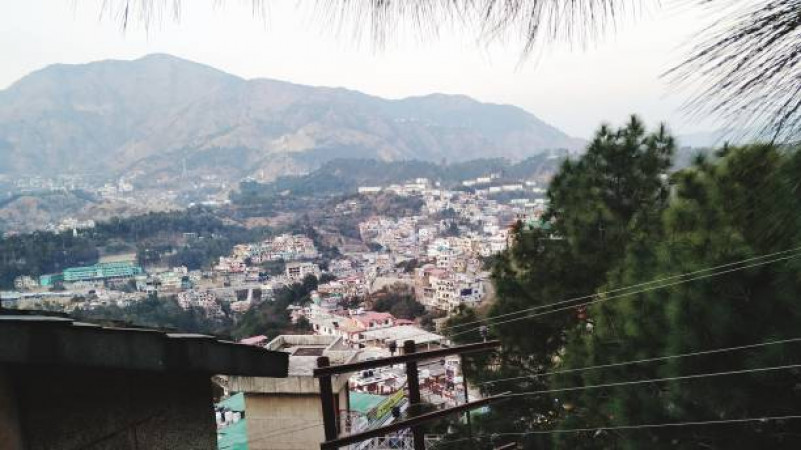
Solan
Package
9000 to 12000
9000 to 12000
Duration
2 to 4 Days
2 to 4 Days
Best time to visit
Mar-Jun, Sep-Nov
Mar-Jun, Sep-Nov
Theme
Hill Station
Hill Station
Solan Travel Guide
Solan, known as the "Mushroom City of India," is a picturesque hill station located in the Indian state of Himachal Pradesh. This charming destination is famous for its rich historical significance as it served as the capital of the princely state of Baghal during the British era. Solan is also renowned for its pleasant climate, lush greenery, and stunning views of the Himalayas, making it a popular retreat for nature lovers and adventure enthusiasts alike.Top Attractions in Solan
1. Kasauli Hill Station 2. Shoolini Mata Temple 3. Mohan Shakti National Heritage Park 4. Jatoli Shiv Temple 5. Solan Brewery 6. Karol Tibba 7. Mall RoadSolan is Famous for
Its serene hill station charm and delicious mushroom delicacies.Top Attractions in Solan
- Kasauli Hill Station - Shoolini Mata Temple - Mohan Shakti National Heritage Park - Jatoli Shiv Temple - Solan Brewery - Karol Tibba - Mall RoadWhat's Great about Travelling to Solan?
- Serene hill station getaway - Perfect for nature lovers and adventure seekers - Rich historical and cultural experiencesWhat's Not So Great about Travelling Solan?
- Limited nightlife options - Can get crowded during peak tourist seasons - Limited public transportation optionsTravel Tips for Solan
- Carry warm clothing as the weather can be unpredictable - Book accommodation in advance during peak seasons - Respect local customs and traditions - Be cautious while trekking in hilly areasImportant Solan trip information
- Ideal Duration: A weekend getaway or 3-4 days trip.
- Best Time to Visit: March to June and September to November for pleasant weather.
- Nearby Airports and Railway Stations: The nearest airport is Chandigarh Airport, and the closest railway station is Kalka Railway Station.
Top 12 Places to visit in Solan
FAQ's on Solan
Q1: What is the best time to visit Solan?
The best time to visit Solan is during the summer months from March to June when the weather is pleasant and ideal for exploring the outdoors. Another good time is during the autumn months from September to November when the monsoon has passed, and the landscape is lush green. Avoid visiting during the winter months from December to February as it can get quite cold. Solan also hosts various festivals and cultural events throughout the year, so check the event calendar if you want to experience the local culture.
Q2: Do I need a visa to travel to Solan?
Most visitors to Solan will need a valid visa to enter the country. However, there are some exceptions for certain nationalities that may be eligible for visa-on-arrival or visa-free entry. It is recommended to check with the nearest embassy or consulate of Solan to verify your specific visa requirements before your trip. Make sure your passport is valid for at least six months beyond your intended stay to avoid any issues at the immigration checkpoint.
Q3: What are the must-visit attractions in Solan?
Solan offers a variety of attractions for visitors to explore. Don't miss the famous Shoolini Mata Temple, known for its stunning architecture and religious significance. The Mohan Shakti Heritage Park is another must-visit with its beautiful gardens and cultural exhibits. Nature lovers will enjoy a visit to the Jatoli Shiv Temple and the Gilbert Trail for some scenic views. For a taste of history, the Solan Brewery and the Kuthar Fort are worth a visit. Exploring the local markets and trying out the delicious street food are also popular activities in Solan.
Q4: Is Solan a safe place to travel?
Solan is generally a safe destination for travelers. Like any other place, it's important to take common precautions such as safeguarding your belongings and being aware of your surroundings, especially in crowded areas. Avoid walking alone at night in poorly lit or unfamiliar areas. It's advisable to drink bottled water and eat at reputable establishments to avoid any health issues. Overall, exercising normal safety measures will ensure a pleasant and secure trip to Solan.
Q5: What is the local currency in Solan and can I use credit cards?
The local currency in Solan is the Indian Rupee (INR). While credit cards are accepted at major hotels, restaurants, and stores in urban areas, it's advisable to carry cash when visiting local markets or smaller establishments. ATMs are widely available in Solan, especially in urban centers, where you can withdraw cash using your international debit or credit card. Inform your bank of your travel plans to avoid any issues with card transactions abroad.
Q6: What is the local cuisine like in Solan?
Solan boasts a rich culinary heritage with a variety of dishes to tantalize your taste buds. Try the local specialties like Sidu, a steamed bread made from wheat flour, and Madra, a traditional Himachali dish made with lentils and yogurt. Don't miss out on the flavorful Chha Gosht (lamb curry) and the spicy Sepu Vadi (lentil dumplings). For dessert, indulge in Mittha, a sweet rice dish, and Babru, a deep-fried bread stuffed with black gram paste. Vegetarians can savor dishes like Chana Madra (chickpea curry) and Lingri Palda (mushroom curry). Enjoy the diverse flavors of Solan's cuisine during your visit.
Q7: What transportation options are available in Solan?
Solan offers various transportation options for getting around the city and exploring nearby areas. Public buses and shared taxis are common modes of transport for short distances within the city. Auto-rickshaws are also available for convenient travel within Solan. If you prefer more comfort and flexibility, you can hire a private taxi or rent a car for self-driving. For longer journeys, buses and trains connect Solan to major cities in India. Hiring a local guide or joining a tour group is another great way to explore Solan and its surrounding attractions. Plan your transportation based on your itinerary and preferences for a smooth travel experience.
Q8: Are there any cultural norms or etiquette I should be aware of when visiting Solan?
When visiting Solan, it's important to respect the local customs and traditions of the region. Greeting people with a smile and a slight bow is considered polite in Indian culture. Avoid public displays of affection as it may be frowned upon in conservative areas. When visiting temples or religious sites, dress modestly and remove your shoes before entering. It's customary to ask for permission before taking photographs of locals or religious ceremonies. Be mindful of the caste system and avoid sensitive topics such as politics or religion in conversations. Tipping is appreciated for good service, so remember to tip waitstaff, drivers, and guides accordingly. By being aware of and respecting the cultural norms of Solan, you can ensure a harmonious and enjoyable travel experience.
Q9: I am a travel agent. How can I buy travel leads of Solan?
Register yourself as a travel agent at agents.tripclap.com and then you can buy travel leads to Solan once your account is approved. For more details contact our support team at +91-8069186564 or support@tripclap.com

